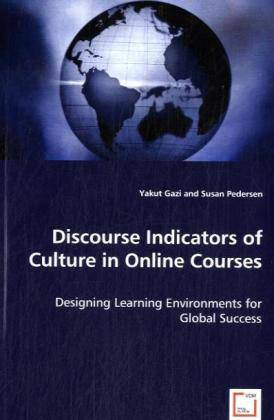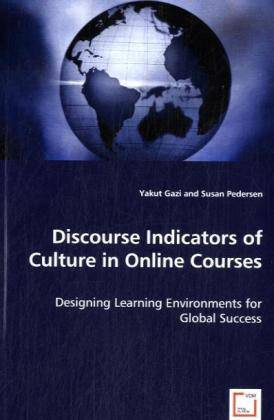
- Afhalen na 1 uur in een winkel met voorraad
- Gratis thuislevering in België vanaf € 30
- Ruim aanbod met 7 miljoen producten
- Afhalen na 1 uur in een winkel met voorraad
- Gratis thuislevering in België vanaf € 30
- Ruim aanbod met 7 miljoen producten
Zoeken
Discourse Indicators of Culture in Online Courses
Designing Learning Environments for Global Success
Yakut Gazi, Susan Pedersen
Paperback | Engels
€ 88,45
+ 176 punten
Omschrijving
Networked computers make interaction between peoples of different cultures possible on a scale, scope, and speed never before available. On the other hand, the usual challenges that come with the cross-cultural nature of interactions are further complicated by the lack of paralinguistic or non-linguistic clues and non-verbal behavior, like body language. Online learning is a growing area of interest worldwide, as it provides learning opportunities for large groups of people independent of differences in time, pace, and location. However, difficulties in these interactions are reported to arise, partly because the dominant mode of interaction is text-based and stripped of its non-verbal and visual clues to communication. One indication of effective online communication in an intercultural learning environment may be the creation of a third, polycentric culture when materials from one culture are studied by people in a different culture. This case-study examines the manifestations of culture in the discourse of an online course and makes recommendations on course design features for creation of a third culture.
Specificaties
Betrokkenen
- Auteur(s):
- Uitgeverij:
Inhoud
- Aantal bladzijden:
- 200
- Taal:
- Engels
Eigenschappen
- Productcode (EAN):
- 9783639057928
- Verschijningsdatum:
- 29/07/2008
- Uitvoering:
- Paperback
- Afmetingen:
- 150 mm x 220 mm
- Gewicht:
- 316 g

Alleen bij Standaard Boekhandel
+ 176 punten op je klantenkaart van Standaard Boekhandel
Beoordelingen
We publiceren alleen reviews die voldoen aan de voorwaarden voor reviews. Bekijk onze voorwaarden voor reviews.







